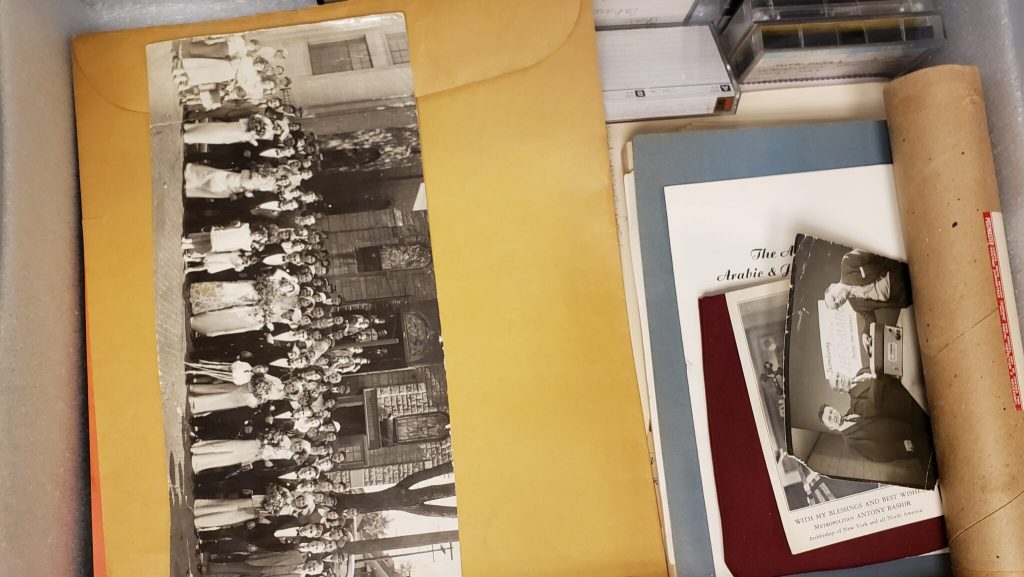The Metro: Community history project in Detroit to collect Arab and Chaldean stories
The Metro February 28, 2024Matthew Jaber Stiffler, director of the Center for Arab Narratives, joined the show on Wednesday to discuss the project.

A National Park Service grant awarded to the city of Detroit will fund a historic property survey of local sites related to Arab and Chaldean community history and the collection of local and family histories.
Metro Detroit is home to one of the highest populations of Arab Americans in the United States. And recently, the National Park Service awarded the city of Detroit a $50,000 grant to showcase Arab American and Chaldean immigrant stories.
Though Detroit’s first Arab and Chaldean immigrants arrived more than a century ago, there are currently no historic districts or properties listed in the National Register of Historic Places related to Detroit’s Arab and Chaldean communities. This new project by Detroit’s Historic Designation Advisory Board (HDAB) aims to change that by using the NPS Underrepresented Communities (URC) grant to fund a historic property survey of Detroit sites related to Arab and Chaldean community history as well as collect local and family histories.
Detroit is the first city to receive this grant in recognition of Arab and Chaldean immigrants, according to the city.
Matthew Jaber Stiffler, director of the Center for Arab Narratives, joined The Metro on Wednesday to discuss the new project. He says it offers a chance to find out just how extensive Arab American and Chaldean roots are in the city.
“I think the young people, if their parents were immigrants or their grandparents were immigrants, they might hear tales of ‘oh, we used to hang out at this restaurant in Detroit in the 1940s or ’50s.’ But that history hasn’t been recorded,” Stiffler said. “So there’s nowhere to turn to actually see it all and to bring those stories to life for the youth to carry that forward.
“It’s very important that we look back and make sure the roots are detailed, so that we can carry that into this next generation, which is going to just keep getting bigger.”
Visit detroitmi.gov for more information about the project.
Subscribe to The Metro on Apple Podcasts, Spotify, NPR.org or wherever you get your podcasts.
More from The Metro on Feb. 28, 2024:
- Voters demanding a ceasefire in Gaza sent President Biden a strong message in yesterday’s Democratic primary in Michigan, with more than 100,000 “uncommitted” votes cast on Tuesday.
- Jane McAlevey, organizer, scholar, author and senior policy fellow at the University of California, Berkeley’s Labor Center, joined the show to help analyze the repeal of the ‘Right-to-work’ law in Michigan that took effect this month.
- WDET’s Nargis Rahman reports on Michigan’s primary results and the big vote tallies for “uncommitted” in the Democratic ballot
- Grace Wolf, vice president of Crisis Care Services for the Detroit Wayne Integrated Health Network, joined the show to discuss how Wayne County is ramping up its mental health response.
Listen to The Metro weekdays from 11 a.m. to 2 p.m. ET on 101.9 FM and streaming on-demand.
Trusted, accurate, up-to-date.
WDET strives to make our journalism accessible to everyone. As a public media institution, we maintain our journalistic integrity through independent support from readers like you. If you value WDET as your source of news, music and conversation, please make a gift today.
